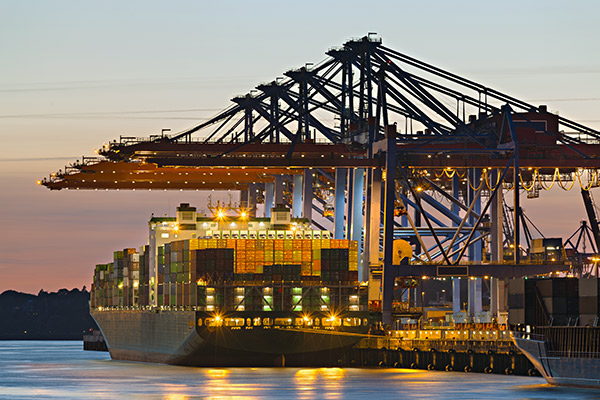Our Sea Freight Division
Learn moreYour trusted sea freight partner
UniOcean is the sea freight logistics division of Uniserve, the UK’s largest independent sea freight carrier. Our extensive range of flexible full container load (FCL) options and less-than-container load (LCL) services provide more choices and flexibility than our competitors.
By investing in and controlling all key components of the sea freight process, we ensure seamless integration and customisation for our clients. Our in-house services include warehousing, distribution, container transport, port operations, IT platforms, customs connectivity, overseas operations, and training.




Sea Freight Services

FCL
Service contracts and guaranteed space, achieved through our major annual volumes.

LCL
An unparalleled number of weekly import and export departures with the fastest transit times.

PROJECT CARGO
Solutions for out of gauge and unusually sized cargo, including ship chartering.

COOL CHAIN
Temperature controlled equipment for perishable and frozen products with our specialist knowledge.

FREIGHT MANAGEMENT
Solutions that encompass the entire supply chain and peak season management programs.

CONTRACTS
3, 6 and 12 month spot contract options available allowing fixed pricing, subject to volumes.

BUYERS CONSOLIDATION
Multi-vendor and multi-region origin consolidations to minimise costs.

CUSTOMS
Customs clearance and duty management through our own offices and overseas partners.
SEA FREIGHT FAQ
What is sea freight?
Sea freight is the process of transporting goods by sea using cargo ships. It is an economical and widely-used method for shipping large volumes of goods over long distances, especially for international trade.
How do I calculate sea freight costs?
To calculate sea freight costs, consider factors such as container size, shipment weight, distance, transit time, and the specific shipping route. Additional charges, such as customs duties and taxes, terminal handling, and documentation fees, may also apply.
What is the difference between LCL and FCL in sea freight?
LCL (Less-than-Container Load) is for smaller shipments that don’t fill a container, where multiple shippers share container space. FCL (Full Container Load) is when a single shipper occupies an entire container. LCL is more cost-effective for smaller shipments, while FCL offers quicker transit times and lower risk of delays for larger shipments.
What is more economical? Air, road, or sea freight?
Sea freight is typically the cheapest option for long-distance, international shipments, while road freight may be more cost-effective for domestic or short-distance transport. Air freight is usually the most expensive but offers the fastest transit times.
Should I buy insurance for sea freight?
Purchasing insurance for sea freight is recommended to protect your cargo against potential risks, such as damage, theft, or loss during transit. Insurance coverage provides financial security and peace of mind, ensuring you are compensated in case of unforeseen circumstances.
Get Started Today
Contact our team of sea freight experts for more information or to discuss your specific storage needs. Request a free, no-obligation quote from UniOcean
